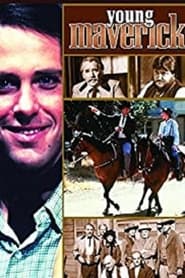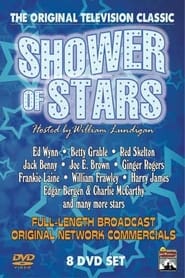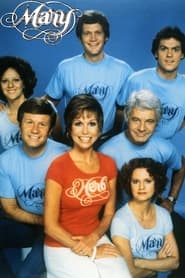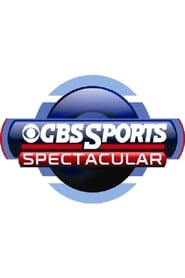Cbs TV Series - Page 68
-
The Cube
0000
The Cube
0000
The Cube is an upcoming American game show based on the hit UK game show under the same name. The pilot episodes are being taped in London on the set of the British version. It was first hinted that Fox would pick up the show, but they later dropped it, only to be picked up by rival network CBS instead. Neil Patrick Harris will be the host. The show is the CBS network's response to NBC's Minute to Win It. The top prize is going to be $500,000. Although the pilot episode of the U.S. version of The Cube was filmed in early 2010, it is currently unknown when the series will actually premiere on CBS. -
House Blend
0000
House Blend
0000
House Blend was a pilot for an American Television Series written by Anne Flett-Giordano and Chuck Ranberg and directed by John Whitesell. It was made by Paramount Network Television. The pilot first aired on May 1, 2002. -
That's My Boy
0000
That's My Boy
0000
That's My Boy is a largely forgotten 1954-1955 CBS situation comedy television series based on the 1951 Dean Martin and Jerry Lewis film of the same name. The series, written by Bob Schiller and filmed before a live audience, starred Eddie Mayehoff as Jack Jackson, Sr., Gil Stratton as Jack, Jr., and Rochelle Hudson as Alice Jackson, the wife and mother. The senior Jackson is a construction contractor who had been a star football player in college, and he is determined to have "Junior" follow in his gridiron path at their common alma mater. The series aired at 9 p.m. Eastern in the slot following My Favorite Husband and preceding June Havoc's sitcom Willy on CBS. Both That's My Boy and Willy aired opposite The George Gobel Show on NBC. The following season, 1955–1956, this time slot was occupied by the first year of the western Gunsmoke. CBS aired reruns of That's My Boy at 7:30 p.m. on Sunday from June to September 1959. -
Really Raquel
0000
Really Raquel
0000
Really Raquel was a prime-time variety show adapted from Raquel Welch's 1973 live night club show. The special showcased Welch's talents as a singer, dancer and comedienne, pitting her in a variety of skits with the Krofft Puppets, who were the only guest stars. Some Krofft sites list the title of the special as Raquel Welch in the World of Sid and Marty Krofft. The show aired on CBS on March 8, 1974. -
Young Maverick
1979
star 5.5Young Maverick is a 1979 television series that unsuccessfully attempted to recapture some of the magic of the highly successful 1957 series Maverick, which had starred James Garner as roving gambler Bret Maverick. Charles Frank played Ben Maverick, the son of Bret's first cousin Beau Maverick, making him Bret's first cousin once removed. Frank's real-life wife Susan Blanchard played his girlfriend Nell, while John Dehner appeared as a frontier marshal who had arrested Ben's father Beau decades before. The series was cancelled by CBS after only eight hour-long episodes had been shown, leaving several which were never aired. The 1978 TV-movie The New Maverick, featuring Garner as Bret, Frank as Ben, Jack Kelly as Bret's brother Bart Maverick, and Blanchard as Nell, served as the pilot for the series. Garner appeared as Bret Maverick in the very first scene of the series, but only for a few moments. Among the actors appearing on the series were Howard Duff, John McIntire, James Woods, Donna Mills, and Harry Dean Sta -
Shower of Stars
1954
Shower of Stars
1954
Shower of Stars is an American variety television series broadcast live in the United States from 1954 to 1958 by CBS. The series was broadcast in color which was a departure from the usual programming broadcast by CBS. -
Fire in the Dark
0000
star 5.2A family confronts feelings of guilt and stress when they realize that they must place their aging parent in a nursing home. -
Go Toward The Light
0000
star 7.5Go Toward the Light is a 1988 television film starring Linda Hamilton, Joshua Harris and Richard Thomas. The film first aired on CBS on November 11, 1988. -
Horton Hears a Who!
0000
star 7Horton Hears a Who! is a 1970 television half-hour long special based on the Dr. Seuss book of the same name, Horton Hears a Who!. It was produced and directed by Chuck Jones - who previously produced the Seuss special How the Grinch Stole Christmas! - for MGM Television. The special contains songs with lyrics by Seuss and music by Eugene Poddany, who would later write songs for Seuss' book, The Cat in the Hat Song Book. -
Mary
0000
Mary
0000
Mary is an American variety show that aired on CBS as part of its 1978-79 fall lineup. The series was hosted by and starred Mary Tyler Moore. -
Amateur's Guide to Love
0000
The Amateur's Guide to Love is an American television game show, created by Merrill Heatter and Bob Quigley, that ran on CBS from March 27 to June 23, 1972. Gene Rayburn was the emcee, while Kenny Williams was the announcer. The theme was written by Mort Garson, of Our Day Will Come fame. Each episode began with Garson's theme song, set to shots of a van emblazoned with the Amateur's Guide to Love logo driving around southern California, with scenes of men and women falling in love with each other. As the van travels around, host Gene Rayburn sets the scene for the game show: Afterwards, the show would then cut to the studio, where announcer Kenny Williams would introduce this weeks' panelists, and Rayburn. -
Arly Hanks
0000
Arly Hanks
0000
Arly Hanks is a 1993 American television pilot based on the first book of Joan Hess' series Malice in Maggody. Written by Sean Clark and directed by Arlene Sanford, it screened on CBS on August 20, 1994. Due to low ratings, the show was removed from the CBS season. Filmed in Atlanta, Georgia, the plot centered around Arly Hanks who, after divorcing her husband, leaves her life in New York City and returns to her small hometown of Maggody, Arkansas. She becomes Sheriff of Maggody and deals with mischievous residents while solving mysteries. -
Day and Date
0000
Day and Date
0000
Day and Date was a daily hour-long syndicated program in the 1990s. It was syndicated by Group W Productions in 1996. It was hosted by Dana King and Patrick Vanhorn. The program was intended as a lead-in to local early news programs. -
High Finance
0000
High Finance
0000
High Finance is a quiz show created and hosted by Dennis James which aired on CBS from July 7 to December 15, 1956. It followed Gunsmoke on the CBS schedule. High Finance aired at 10:30 p.m. Saturdays opposite NBC's Your Hit Parade. On the program, contestants answered questions about current events. The player would be asked five questions based on three newspapers which he or she studied before the show. Each correct answer earned $300. Three correct answers allowed the player to play the "investment segment" in which he or she wagered any amount of the money won on answering a question. A correct answer won the wager and a prize, plus the option to risk any prizes won and return the next week to play another "investment segment" or keep any prizes won and leave the show. A fourth win would earn that player his or her "dream prize", such as a miniature golf course or a restaurant. A fifth successful "investment segment" won that player an additional $75,000. -
CBS Sports Spectacular
0000
CBS Sports Spectacular is a sports anthology program produced by CBS Sports. The series began on January 3, 1960 as The CBS Sports Spectacular, and has been known under many different names, including CBS Sports Saturday, CBS Sports Sunday, Eye on Sports and The CBS Sports Show. The program continues to air on an irregular basis on weekend afternoons, especially during the late spring and summer months. Normally it airs pre-recorded "time-buy" sports events produced by outside companies, such as supercross or skiing competitions, or sponsored documentaries. -
Give-n-Take
0000
Give-n-Take
0000
Give-n-Take is an American television game show which ran on CBS from September 8 to November 28, 1975. Jim Lange hosted, with Johnny Jacobs announcing. The series, which replaced Spin-Off, ended after 60 episodes. -
The Vincent Lopez Show
0000
The Vincent Lopez Show is an American musical television program broadcast on the now defunct DuMont Television Network, and later on CBS Television. -
Place the Face
0000
Place the Face
0000
Place the Face is an American game show that aired on CBS and NBC from 1953 to 1955. The series was hosted by Jack Smith, Jack Bailey, and then Bill Cullen. Jack Narz was the announcer. -
Adventure
0000
Adventure
0000
Adventure is a documentary television series that aired on CBS beginning in 1953. The series was produced in collaboration with the American Museum of Natural History and hosted by Charles Collingwood. The program consisted of interviews with scientists and academicians and films of anthropological expeditions. Individuals appearing in interviews included historian Bernard DeVoto, biologist Alexander Fleming, and adventurer Sasha Siemel. Marcel LaFollette has written, "Production approaches that are now standard practice on NOVA and the Discovery Channel derive, in fact, from experimentation by television pioneers like Lynn Poole and Don Herbert and such programs as Adventure, Zoo Parade, Science in Action, and the Bell Telephone System’s science specials. These early efforts were also influenced by television’s love of the dramatic, refined during its first decade and continuing to shape news and public affairs programming, as well as fiction and fantasy, today." LaFollette included the program in he




